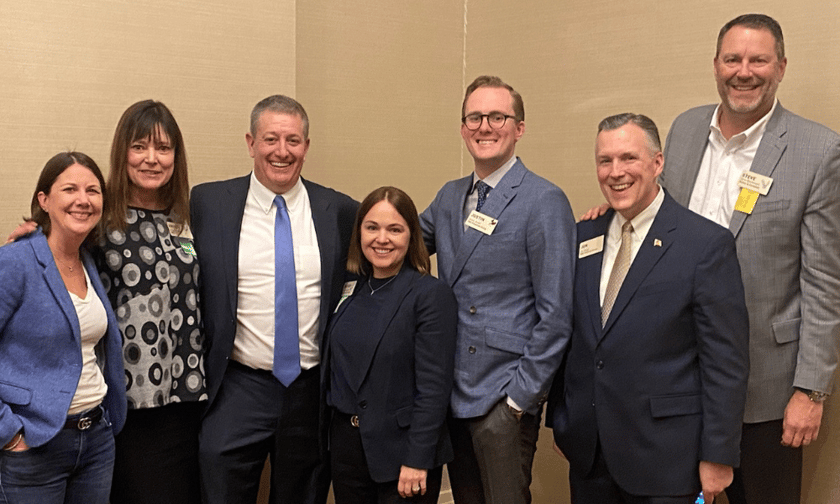

In 2009, Jacqueline Roth (pictured center), the president of IMA Financial Group’s employee benefits division, found herself at a crossroads.
Initially hesitant about diving into the world of insurance, a chance meeting with her company’s CEO opened her eyes to the profound impact health insurance has on individuals’ lives and career decisions.
“What I didn’t fully appreciate at the time was that there was a team of people behind that one decision, and that it has tremendous power and influence in people’s lives,” she said. “Once I got my arms around the potential impact, I thought ‘maybe I could believe in this’. And the rest is history.”
Fast forward to her role at IMA Financial Group - Roth’s unique approach has been shaped by her background in recruiting. Her perspective, rooted in metrics and quality, transformed her from one sales role to another, with a focus on solving problems through employee benefits programs.
“I’m fortunate for the training opportunities that I had at Robert Half,” she told Insurance Business. “It was a metrics-based system that focused on [the idea that] if you talk to enough people, and if you open enough doors and if you have a quality product - and our product was people - then you will make connections happen. I brought that philosophy into being a consultant in the health insurance space because people are still at the centre of the whole conversation.”
As Roth transitioned from recruiting to consulting, she discovered a common challenge faced by employers: listening to their employees. Roth believes that her role involves helping employers truly understand the needs and desires of their workforce.
“Often, [leaders] say at the end of the year, ‘we just don’t know if our people appreciate it’. And my question to them is, ‘Have you listened? How would you know if they appreciate it?’” she said. “To me, transitioning a little bit out of out of recruiting but into working with HR decision makers, the question was ‘what is the goal? What are you trying to tackle?’ And using so many of the skills that I learned in recruiting around metrics and quality, applying those in this space, it worked for me - to be networking with the same group that I had been working with, which was really HR leaders and CEOs.”
That switch between recruiting and insurance may sound like a leap, but as Roth told Insurance Business there’s a fair few transferrable skills – not least understanding how to handle unforeseen obstacles with grace. That particular skill came in when the Affordable Care Act passed.
“There was an initial fear and panic around what would be mandated,” Roth explained. “And although there were several years to become in compliance with certain components, many people were not talking about what you could still do to own and make a meaningful program that met the goals that you had as an organization.
“I think it was a real test for the industry to figure out how quickly could we pivot to supporting reporting rules that we had never had to comply with before – measuring affordability, getting accurate information on MLR and working with carriers in a different way.”
When discussing larger, more uniform challenges faced by employers, Roth emphasized the difficulty in listening to a large workforce. Her solution? Harking back to those recruiting days by conducting surveys and creating opportunities for employees to express their needs.
“It’s easier to have four people decide for 1,000 than it is to listen to 1,000 and have four people make a more educated decision,” she said. “In my role, we are able to help employers listen to their people.
“Whether it’s in person, oftentimes it’s with technology, we get to deploy surveys and host listening opportunities for our clients. So that when the data comes back, we’re not just sitting in a room looking at the funding strategy or the voluntary benefit we need to introduce this year. We get to say, ‘we asked your people and here’s what they care about’.”
